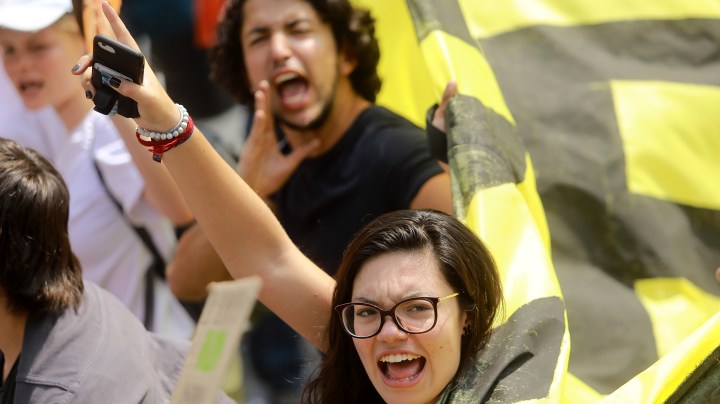New Human Rights Reports on the Americas Shows There’s Still a Lot of Work to Be Done

A woman shputs slogans during a demonstration on September 20, 2019 in Mexico City, Mexico. Photo by Hector Vivas/Getty Images
Amnesty International’s extensive, detailed annual report which assesses human rights across the Americas cements the last year as one of awakening in terms of movements and protests across Latin America and the Caribbean in particular. On the other hand, the region has remained one of the most dangerous in the world for journalists and human rights defenders.
In 2019, 208 people were killed on the quest to defend human rights in the areas that need it most. Countless more face harassment. A report from earlier this year revealed that that equates to more than two-thirds of the total killings of human rights defenders—including those who fight for indigenous, women’s, environmental and LGTBQ+ rights.
Meanwhile, their work, and coverage of it, is greatly needed.
At least 210 people died and hundreds were injured as a result of violence in protests, with almost 50 of the casualties being from Venezuela. That surge is reportedly a result of increased militarization and policing as a response to more organized The South American country also saw a large exit of citizens, 4.8 million people to be exact, making it the second-largest refugee crisis after Syria.

Secondly, women across Latin America (e.g., in Mexico and Chile) have continued to take to the streets to make their voices heard. Meanwhile, at least 3,500 women were killed across the Americas in 2018 and femicides continue to be a significant issue across the board.
Lastly, our planet is still in great danger and Latin American countries like Bolivia and Brazil are taking a hit. Overall, Brazil has had a 30% increase in forest fires in 2019.
“Never has the defense of the planet’s environment been more important,” said Michel First of the United Nations in 2015. “And yet never have those leading this struggle faced greater risks.”

Read the report—with country-specific breakdowns—here.